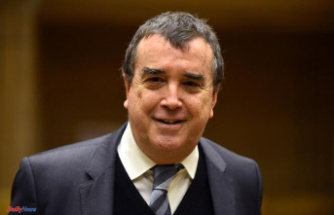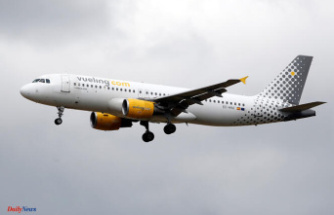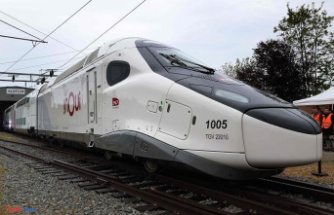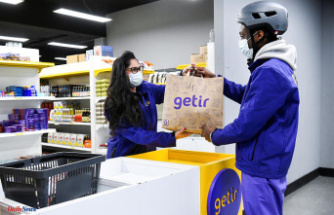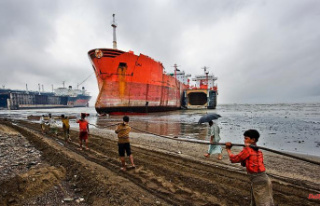The sanctions against Russia are causing prices to rise drastically there. To counteract this, President Putin is raising pensions and minimum wages. Soldiers should also be better paid for their deployment in Ukraine.
Three months after the war began, Kremlin chief Vladimir Putin ordered higher military pay for Russian soldiers fighting in Ukraine. According to the Interfax agency, Putin justified the decision by saying that the salaries of the military stationed abroad are linked to the development of the foreign exchange market and that the US dollar is currently weak compared to the Russian ruble. How much more pay there should be exactly was initially unclear.
In addition to their military pay, the Ukrainian soldiers who are involved in active combat operations against the Russian troops receive a special bonus from President Volodymyr Zelenskyj of 100,000 hryvnia (around 3,150 euros) per month or 3,000 hryvnia per day. For the month of June, 64.5 billion hryvnia - more than two billion euros - are to be paid out, said Defense Minister Oleksiy Resnikov. Such a sum was spent in 2021 throughout the year.
Russian President Putin visited soldiers in a Moscow hospital on Wednesday who were injured in the "special military operation" - as the war against Ukraine is officially called in Russia. State media released videos showing Putin shaking hands with two men and wishing them a speedy recovery. The Kremlin boss asked one of the two injured if he wanted to continue serving after his recovery. "Of course," replies the man. "They will," says Putin.
On Wednesday, the head of the Kremlin also announced an increase in pensions and an increase in the minimum wage by ten percent each from June 1st. In Russia, where poverty in old age is widespread, the average monthly pension will be 19,360 rubles (around 307 euros) according to the Ministry of Labour. Many older people in particular are concerned about food prices. Since the start of Russia's war of aggression against Ukraine in the past few weeks, these have risen sharply in the wake of Western sanctions.
In Russia, too, prices have skyrocketed due to a whole chain of sanctions imposed by the West. Foreign companies have shed their involvement in Russia en masse. The research and appraisal institute of the VEB-Bank stated that the increase in social benefits will slow down the decline in real incomes, wages and pensions, but will not prevent them. Even with a 10 percent increase in the minimum wage and pensions, the VEB expects Russians' real disposable income to fall by 7.5 percent this year and real wages by nearly 6 percent.
The Institute assumes that poverty will increase by almost 13 percent. Finance Minister Anton Siluanov said the measures would cost the state budget around 600 billion rubles this year and around 1 trillion rubles in 2023. An unscheduled central bank meeting is scheduled for Thursday. Analysts expect it to cut interest rates from 14 percent back to 9.5 percent, where they were before the invasion of Ukraine.


